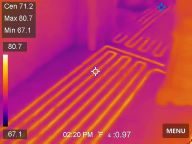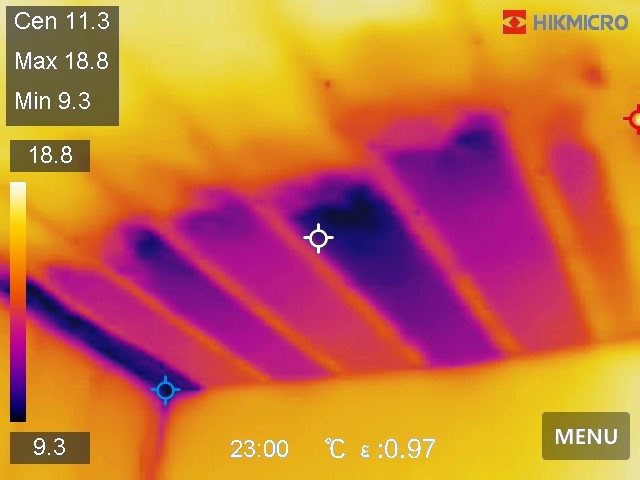With over 35 years of experience in building management, maintenance, and construction, as well as having owned a Home Improvement business, I bring a wealth of knowledge and experience to my Home Inspections. I have been a full time home inspector since 2009.
A building is a dynamic structure, where each building element depends on another. Being a good home inspector takes more than a knowledge of the systems, construction techniques, materials, etc., it takes an understanding of how those systems and components work together. Even small modifications of the original design could have undesirable consequences, such as sagging roofs, rafter spread, sloping floors, etc. Poor soil conditions under part of the footing can cause ongoing foundation movement, which could affect the walls, floors, and roof structure as well. Poor drainage conditions near the foundation walls can result in moisture intrusion into the structure, high hydrostatic and ground freeze pressure onto the foundation walls, eventually causing cracks or bowing of the foundation walls. Often, potential new owners might feel that they can assess the condition of the house themselves, but it takes special training, knowledge, and the experience of a home inspector to understand the dynamics of a structure.
What's Included in a General Home Inspection [in more detail]:
The General Home Inspection includes the inspection of all major components of the structure, including but not limited to: Structural, Electrical, Plumbing, HVAC, Roof and Roofing systems, Insulation, Attic Ventilation as well as: Grounds; Basement; Crawl Spaces; Porches; Balconies; Decks; Patios; Siding; Windows/Doors; Attic; Venting; Interior Areas; Walls; Ceilings; Girders/Lintels/Posts; Foundation and Slabs; Stairs; Railings; Bedrooms; Bathrooms; Laundry; Kitchen; Fireplaces; SFB appliances; Functional Attached Garage and more...
Note: detached garages, barns and outbuildings are not part of General Home Inspection per NYS Standards of Practice for Home Inspectors, but can be inspected upon request.
A professional home inspection takes approximately 2.5 hrs to 4 hrs, depending on the size and the condition of the home.
As an aide during an inspection, infrared imaging is used as needed to help identify potential radiant floor heating problems, air leakage and insulation issues, hidden roof leaks, rodent, and WDI issues. See some examples below:

properly operational, under the tiles electric radiant floor heating

missing insulation and mice activity in the ceiling
Reviews: To see our reviews, visit GOOGLE, YELP or other search engines, and search for "Prime Inspections"